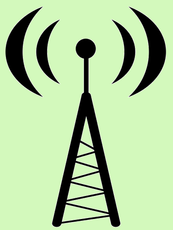
The first and perhaps most important fact is that when the FCC dictated that all network broadcasters begin converting to a digital signal, they also said that they would have to continue sending the over-the-air analog signal as well. This was due to the fact that some parts of the country had no cable service, or consumers could not afford cable or satellite service. So, we all can access free TV from network stations if we simply add an antenna. Fine, so what is Aereo doing to circumvent the fees due to the networks.
Aereo has antenna farms in several parts of the country and captures those free analog programs for distribution. But, these antennas are not the usual “rabbit ears” or cell towers. They are very small, the size of a dime, and a pair is dedicated to each Aereo subscriber. One antenna is for direct broadcast and the other is for recording to the cloud. Customers pay between $8 and $12 dollars a month and can watch network TV from any device either directly or from the storage recording from the cloud. To this, the broadcasters cry foul! They maintain that this is not a private performance for each subscriber but is a “public performance” and they should be paid for this rebroadcast. But consider this scenario; I can watch and record a program to a DVD, and watch it again or give it to a friend. I could also record a series and sell it to a friend. Do I then owe the networks money for this “free service”? Remember that the copyright laws are decades old and have not kept up with technology.
But, there are more wrinkles in this case to think about. During the one hour hearing the Justices seemed to be very much against Aereo. And the criticism came from both sides of the ideological court. And, the Obama administration is backing the networks! What? The executive branch is commenting on what the judicial branch is doing?
If you have followed my postings you recognize cynicism when you see it and this is one of the most concerning facts about this case. My sense is that the verdict is already in and will favor big business over a technology upstart. Is there collusion in the court and big business, or is this simply a clear copyright issue? We will have to wait until June for the answer, but meanwhile, the companies using the cloud as a storage device are watching closely as there may be unintended consequences in any decision. There is an excellent recap of the case in the Boston Globe here. Looks like Napster is back…

 RSS Feed
RSS Feed
